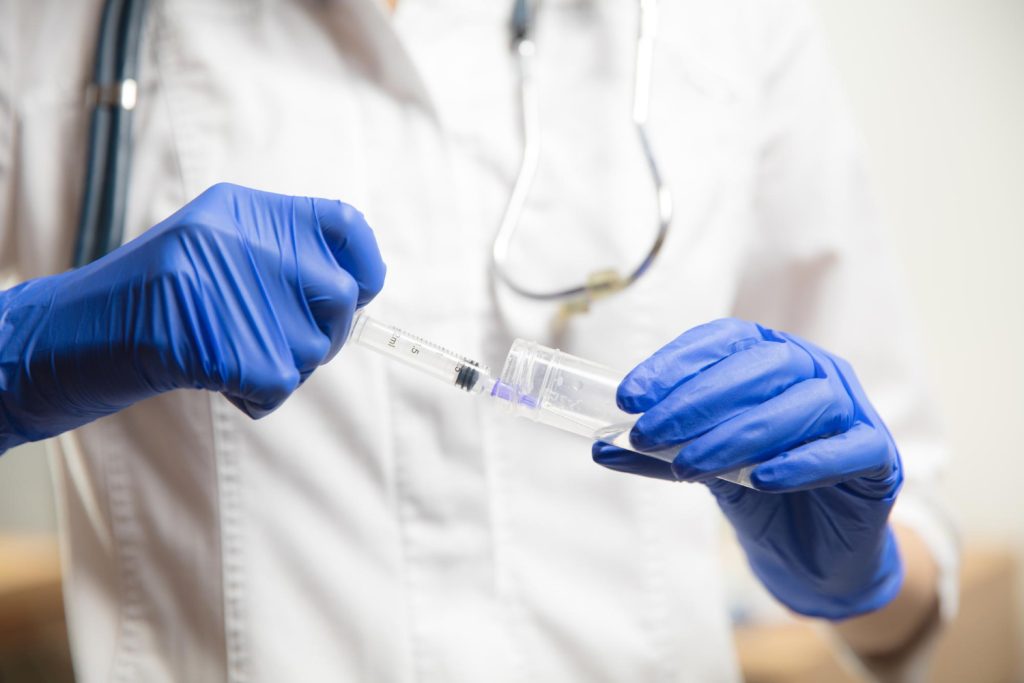As more people explore cannabis products, understanding how they interact with the body becomes essential. THCA, or tetrahydrocannabinolic acid, is a non-psychoactive compound found in raw cannabis. But how long does THCA stay in your system?
Whether you’re curious about THCA retention or concerned about drug testing, knowing the basics can help you stay informed. In this article, we’ll explore how long THCA remains in the body, how it affects drug tests, and key factors that influence its detection.
What is THCA?
THCA, or tetrahydrocannabinolic acid, is a cannabinoid found in raw cannabis. Unlike THC, THCA does not produce psychoactive effects. When cannabis is heated, through smoking or vaping, THCA transforms into THC, the compound responsible for the “high.” This conversion happens during a process called decarboxylation, where THCA loses its acid group. THCA can be consumed in its raw form, such as through THCA tinctures or THCA gummies, offering potential benefits without causing intoxication.
How Does THCA Interact with the Body?
When you consume THCA, it interacts with the body through the endocannabinoid system. This system helps regulate processes like mood, pain, and appetite. Unlike THC, THCA doesn’t bind directly to cannabinoid receptors, which is why it doesn’t produce a high. Instead, THCA is absorbed into the bloodstream and metabolized. It can be stored in fat cells, similar to other cannabinoids. Since THCA doesn’t undergo immediate conversion to THC in the body, its effects remain non-psychoactive unless heated.
How Long Will THCA Stay in Your System?
The length of time THCA stays in your system varies depending on several factors. Unlike THC, THCA is non-psychoactive and may remain in the body differently. Factors like metabolism of THCA, body fat percentage, and how often you consume THCA products can affect how long it stays in your system. People who consume THCA regularly may have it in their bodies longer, as cannabinoids are stored in fat cells. On average, cannabinoids can stay in the system for a few days to several weeks.
Does THCA Show Up on a Drug Test?
Most drug screenings do not specifically detect THCA but focus on detecting THC and its metabolites. However, under certain conditions, THCA can convert into THC, which may show up on a drug test. Here’s what you need to know about standard drug tests:
- Urine drug test: The most common test looks for THC metabolites rather than THCA itself. This test may detect THCA in the body for days or weeks.
- Blood testing: Blood tests have shorter detection windows, usually a few hours to a day.
- Hair tests: These tests can detect THC use for up to 90 days but are less likely for THCA detection.
- Saliva tests: These are primarily used for THC detection within a short period, typically a few hours to two days.
THCA may not always cause a positive test result, but it will definitely show as THC if you decarboxylate it before consumption.
Can You Speed Up THCA Elimination?
If you’re facing a drug test and concerned about THCA staying in your system, you might wonder if it’s possible to speed up its elimination. While there are no guaranteed methods to quickly remove cannabinoids like THCA from your body. Certain lifestyle changes and habits can potentially help reduce the time it takes for THCA to leave your system. Here are some common strategies people use to try and speed up the process:
- Stay hydrated: Drinking plenty of water is a common method people use to flush out toxins, including cannabinoids. Staying hydrated supports your body’s natural detoxification processes and may help reduce the concentration of THC metabolites in your system. However, it won’t dramatically shorten the detection window, especially if you consume THCA regularly.
- Exercise regularly: Regular exercise may help burn fat and potentially reduce THCA retention time since the body stores cannabinoids like THCA in fat cells.Activities like cardio and strength training can help break down fat cells, allowing the body to release stored cannabinoids into the bloodstream for eventual elimination. However, it’s important to note that exercise may temporarily increase THC levels in the blood as fat cells break down, which could affect test results if done too close to the test date.
- Eat a healthy diet: Consuming a diet rich in fiber and antioxidants can support the body’s detoxification systems. Foods like fruits, vegetables, whole grains, and lean proteins help maintain a healthy metabolism and assist with the elimination of toxins. High-fiber foods, in particular, aid digestion and can help the body remove waste products more efficiently.
- Consider detox kits with caution: Many companies market detox kits and supplements as quick ways to cleanse the body of THC and THCA. Some people report success with these products, but scientific evidence doesn’t support their effectiveness. Use detox products cautiously, as results depend on individual metabolism and the type of drug test you take.
- Sweating it out: Some believe that using saunas or engaging in activities that make you sweat can help remove toxins through the skin. While sweating is part of the body’s detox process, its impact on removing cannabinoids from the system is likely minimal. Most cannabinoids are eliminated through urine and feces, rather than sweat.
- Avoid further consumption: This may seem obvious, but one of the most effective ways to reduce the chance of THCA being detected is to stop consuming it as soon as possible before a test. Giving your body more time to eliminate existing cannabinoids can significantly reduce the likelihood of a positive test result.
While these strategies may help support the body’s natural detox processes, they won’t provide instant results. The time THCA stays in your system largely depends on factors like frequency of use, body fat percentage, metabolism and overall health. The best way to pass a drug test is to allow ample time for your body to naturally eliminate the cannabinoids.

What You Should Know If You’re Facing a Drug Test
If you’re concerned about passing a drug test while using THCA products, there are several important things to keep in mind. While THCA is non-psychoactive, it can still potentially show up on certain drug tests after converting into THC. Understanding how these tests work and what they are looking for is essential.
Understanding Drug Screening Methods
Urine tests are the most common type of drug screening. In these tests, labs look for THC metabolites rather than THCA specifically. These metabolites can remain in your system for weeks after consumption, depending on how frequently you use THCA products. For those who consume THCA occasionally, the detection window is usually shorter, but regular users may still test positive for up to 30 days or more.
Factors That Affect How Long THCA Stays in Your System
Several factors can influence how long THCA stays in your system and whether it shows up on a drug test. Your metabolism plays a significant role in how quickly your body processes cannabinoids like THCA. Individuals with a faster metabolism tend to eliminate cannabinoids more quickly, reducing the detection window.
Body fat percentage also affects how long THCA stays in your system. The body stores THCA in fat cells, so individuals with higher body fat percentages may retain it for longer periods. Exercise can help release stored cannabinoids, but it won’t immediately clear them from your system.
Additionally, the method of consumption can affect THCA retention. Smoking THCA flower, using THCA tinctures, or consuming THCA gummies all interact with the body differently. For instance, consuming THCA orally typically involves a longer processing time through the digestive system compared to inhalation methods, which may lead to a longer detection window.
Legal Considerations for THCA Users
If you live in a state where THCA products are legal, you may still face challenges with drug tests, especially if your employer has a zero-tolerance policy for cannabis use. Even though THCA is a non-psychoactive compound, a positive test result for THC metabolites can still occur, which could lead to potential legal or employment consequences.
For those who use hemp-derived THCA smokable products, it’s important to stay informed about local cannabis laws and testing policies in your area. Employers and law enforcement often do not distinguish between different cannabinoids, so taking proactive measures to understand the risks is critical.
How Long Does THCA Stay in Your System: A Quick Summary
Various factors influence how long THCA stays in your system, and it varies from person to person. While THCA itself is not usually the target of standard drug tests, the conversion of THCA into THC can still lead to a positive result. The following factors play a major role in how long THCA or its metabolites remain detectable:
- Frequency of Use: Regular consumers of THCA products are likely to have it in their system for a longer period. Occasional users, on the other hand, may clear it faster, typically within a few days.
- Body Composition: Individuals with higher body fat percentages may retain THCA and THC metabolites longer because cannabinoids are stored in fat cells. A leaner individual may eliminate THCA faster.
- Metabolism: A faster metabolism will process cannabinoids more quickly, leading to a shorter detection window. Those with slower metabolisms may experience prolonged retention of THCA in their bodies.
- Method of Consumption: The way you consume THCA matters. For example, smoking THCA flower might clear from the system quicker than consuming THCA tinctures or edibles. These can stay in the system longer due to their processing through the digestive system.
- Type of Drug Test: Different drug tests have varying detection windows. Urine tests, the most common, may detect THC metabolites for weeks. Blood tests have shorter windows, while hair tests can detect THC for up to 90 days.
There is no exact formula for determining how long THCA stays in your body. But understanding these factors can give you a clearer picture.

Understanding How Long THCA Will Stay In Your System
Understanding how long THCA stays in your system is crucial for anyone using THCA products. While THCA itself is non-psychoactive, its conversion into THC can still lead to a positive drug test result. The amount of time THCA stays in the body varies depending on metabolism, body fat percentage and frequency of use. Drug testing methods also play a significant role, with urine tests being the most likely to reveal THC metabolites.
If you’re consuming THCA and concerned about an upcoming test, consider your body’s natural detox process. Staying hydrated, exercising, and maintaining a healthy diet can support elimination, but time is ultimately the best solution. Understanding how different methods of THCA consumption, like smoking or ingesting, affect retention can help you make informed decisions.
Whether you’re a casual or frequent consumer of THCA products; Knowing how it interacts with your body and the risks involved with drug testing is key to responsible cannabis use.


